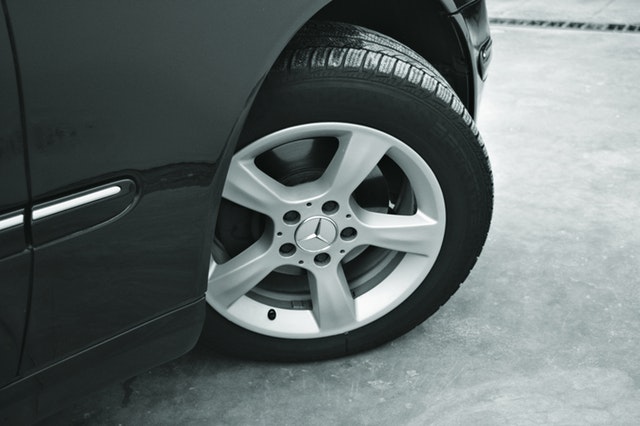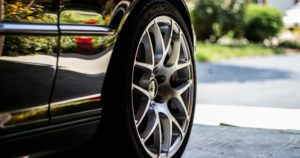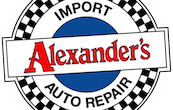
What are some of the potential causes of tires squealing when turning?
In some situations tires squealing may be normal, like if you are driving on painted concrete in a parking garage. This will cause the tires to squeal and is no cause for concern. If your tires squeal during normal driving conditions, it may indicate a problem.
The problem usually lies with the tires themselves. New tires, worn tires, or low-quality tires can all cause a problem. Low-quality tires (often the least expensive tires) use a different tread compound than high-quality tires. This tread compound can cause a squeal because it does not adhere to the road surface. With worn tires, they also have less traction and slip more easily, especially if there is water or sand on the road. This causes the tire to spin faster than the rest of the vehicle and make a squealing noise. New tires will sometimes squeal because of the extra rubber from the molding process. This rubber will usually wear off within a few hundred miles.
Another cause of the squealing is when the tires are not positioned correctly because of an alignment issue or worn suspension part. The alignment is the position of your tires relative to your car. If the alignment is out of specification, then one or more wheels might not make good contact with the ground. This poor contact can cause the tires to slip and squeal. The same can be true if a steering or suspension part is worn. If the part is worn, it can cause the geometry of the suspension to change which can cause the angle of the wheel to change. If the wheel does not make good contact, it can make noise.
Your brakes could be the culprit as well. If your vehicle’s brakes are rusty or failing in a way that causes them to stick, you might hear a squealing when turning from the brakes. The power steering belt is what powers the power steering pump. When turning, there is more force needed to have enough power assist. If the power steering belt is worn or loose it can slip when turning, causing a squeal. There are a number of rubber bushings that help to dampen the steering and suspension components. Any of these bushings can wear and cause a squeal or chirp when going around a corner.
One other possibility could be that your tires are not the source of the squealing! There are a number of other components that may squeal when turning the wheel. These include brakes, power steering belt, and suspension bushings.
Should you be concerned and take your vehicle in for inspection?

Any abnormal noise or feeling in your car could be a sign of a safety concern
Squealing noises when turning are not always cause for concern, but any abnormal noise or feeling in your car could be a sign of a safety concern. For that reason you should have any abnormal noise inspected. Once the vehicle is inspected you can be confident that your car will not leave you stranded.
What are some symptoms other than tires squealing that drivers can look out for?
The first thing to look for that might point to a specific issue would be any recent changes, such as tires being replaced, or the temperatures changing. The other thing to watch out for would be your tire pressures. Every car since 2012 and many before have TPMS (Tire Pressure Monitoring Systems) which will indicate if one or more of your tires is low on air pressure.
How would Alexander’s go about fixing these problems?
As always, our first step is to diagnose the problem. If the noise only happens on hard acceleration, this would be normal. If we heard any abnormal noise, we would inspect for the problem such as wear in the suspension components.
Are there any actionable steps drivers can take to prevent tires squealing in the first place?
The only actionable step to prevent squealing is to buy good quality tires and check your tire pressures regularly. Any other problem that would cause a squealing when turning would be a wear item – with the squealing being one of the signs of failure. Regular inspections are a good way to catch the worn item before it fails and leaves you stranded.

